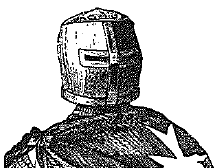Worstword Ho by Samuel Beckett; Grove Press; New York.
The Twofold Vibration by Raymond Federman; Indiana University Press; Boomington.
Beckett continues. While there has been a sense of ending from the beginning, the pauses, as he nears 80, seem . . . felt, not studied. Genuine. The words emerge, repeat, proliferate, press onward, enjamb, stall, renew, yet . . . are arthritic. But come. The man who has forever been seen as a harbinger of darkness and vacuum here becomes transparently clear about the grin: Worstword Ho. No exclamation mark. Still moving toward, around, or through a joke. Not Perelman exactly. But not unlike him, either. Beckett has loosened thousands of words into the void. Is it less a void when the words pile up (and are buttressed by hundreds of scholarly books and papers … and essays), or a greater one? What becomes of impedimenta? Can the writer stop, cease, desist, or do the reverberations from a trembling hand continue on to the unimaginable, through the unknowable? Can something be unsaid? Beckett continues. There will be no stop. Until the end.
Epigones, alas, try to carry on that which need not be toted. Federman attempts the lading. He knows them: Mercier, Malone, Murphy. The breathing of How It Is is studied. The flourishes of Proust delineated. He thinks what can be. But it isn’t. The words come, then disappear. They’re not vaporized. They linger and reverberate, knocking images about as if they are subatomic quarks. (Joyce to the world, the word remains.) Alas. Counterfeit echoes, un heard, of a silent man who sits in a room and writes.

Leave a Reply